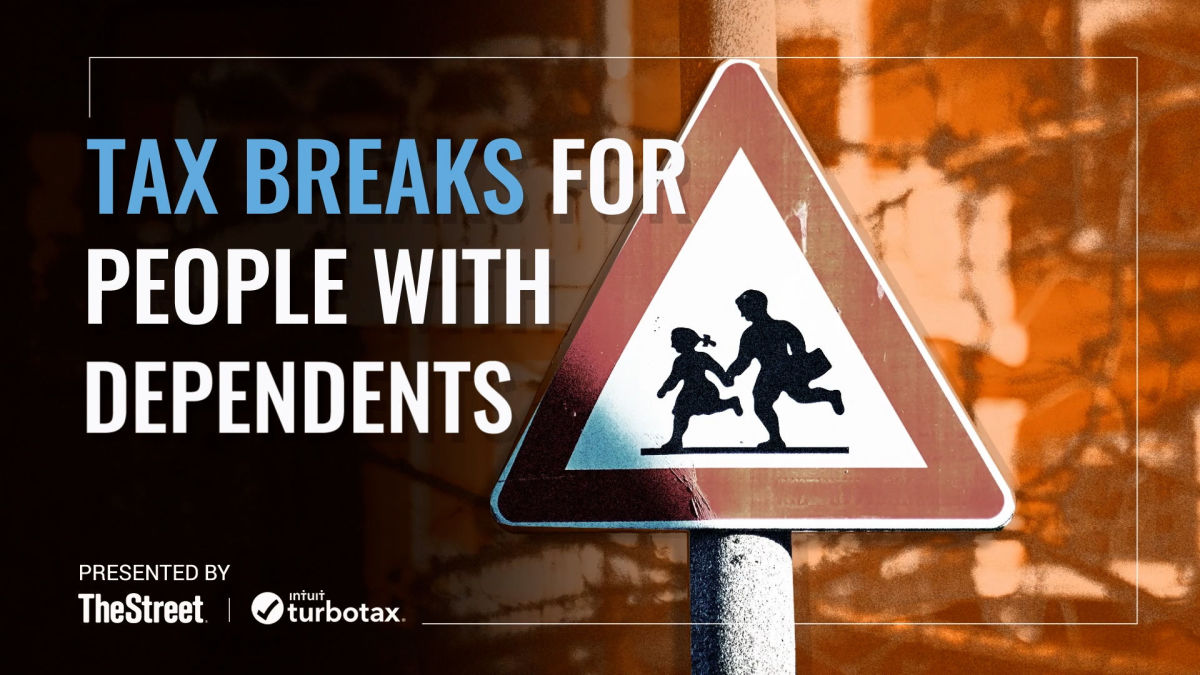
Children up to the age of 24, aging parents and other relatives may qualify as dependents on your tax return. Lisa Greene-Lewis, TurboTax expert and CPA, discusses the essentials of how you can get money back from the IRS for dependent care.
Read the transcript below or watch the video above.
Tracy Byrnes: So if you're taking care of a child or an elderly parent, you can, believe it or not, can get some tax breaks for doing all that. For all your hard work and generosity, Lisa Greene-Lewis, TurboTax expert and CPA is here with us right now.
I mean, we love our kids, we love our parents but they cost a lot of money at the end of the day. So what is it that we can get on our tax return? I guess first—who exactly qualifies as dependent as far as Uncle Sam is concerned?
Lisa Greene-Lewis: A dependent, usually it could be a qualifying child or a qualifying relative. So to be a qualifying child, there are certain criteria that you have to meet. For your child, you need to provide over half of their support. They [must] provide over half of their support. And also there are age requirements for your child.
So if they're aged between 19 and 24, they can still qualify as your child if they're full time in college. But if they're not full time in college, then they would no longer qualify as your qualifying child. They would fall into being a qualifying relative.
Tracy Byrnes: And how does the adult parent thing work? Because a lot of people have taken in their parents, especially, post-Covid.
Lisa Greene-Lewis: Yeah. So, adult parents can qualify as a qualifying relative. They don't need to live with you. It's just a matter of how much support you're giving them. So if you're providing over half of their support—and then there are also income limitations. So they can't make over a certain amount of income. If they do, then they would not qualify.
Tracy Byrnes: Those are all important points people should look into and especially for the qualifying child too. I guess, in the case of a divorce, you have to be careful who's taking the child on what tax return.
Lisa Greene-Lewis: Right. Yes.
Tracy Byrnes: Tax breaks then: If I have a dependent, I have a qualifying child, I have a qualifying relative, what do I get?
Lisa Greene-Lewis: Some of the top credits that you could get: The child tax credit—so for 2023, that's back at up to $2,000. Remember, during Covid relief, that had gone up to $3,600. That's back to $2,000 but it has not gone away.
The child and dependent care credit: So for two or more kids, you can get up to $2,100. And one child, $1,050. And that's for sending them to daycare or even summer camps.
Tracy Byrnes: If he's sent to summer camp or daycare, go get those tax ID numbers because you're going to need them. When you file your tax return, you're going to be scrambling last minute. What are some of the other things? I'm sure that TurboTax can help with this as well.
Lisa Greene-Lewis: Yes. TurboTax guides you through even figuring out if you can claim your child or relative as a dependent as well as searching for those key credits and deductions that you can get. Another one, the earned income tax credit. The IRS states that one out of five people missed this credit. But it is up to over $7,000 if you have three or more kids.
And then also, we don't want to forget our older kids that we've sent out to college. There's education tax credits that you're able to get. So the American Opportunity Tax Credit up to $2,500 and that's for your child that is in college for the first four years of college. But then, there's also the Lifetime Learning Credit. That could just be for one class. It doesn't have to be towards a four-year degree.
Tracy Byrnes: Lisa and I have definitely covered those education credits. So please watch the previous video. And look, we love our kids, we love our relatives but if you can get some money back from the IRS, why the heck not? Lisa Greene-Lewis, TurboTax expert and CPA. Thank you.
Lisa Greene-Lewis: Thank you.







